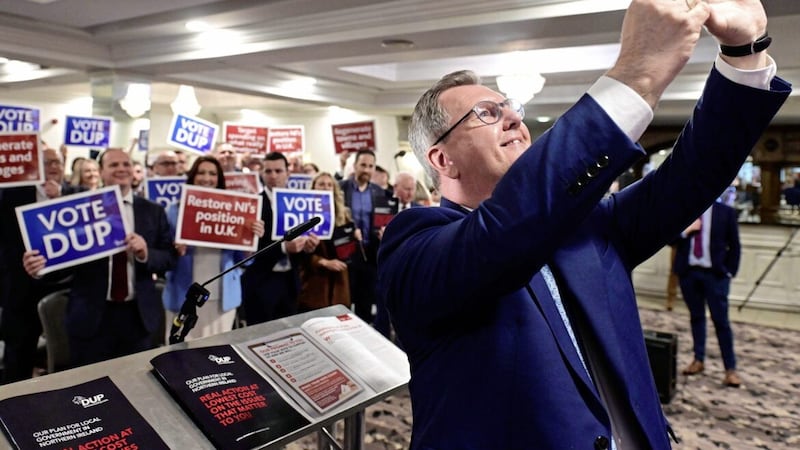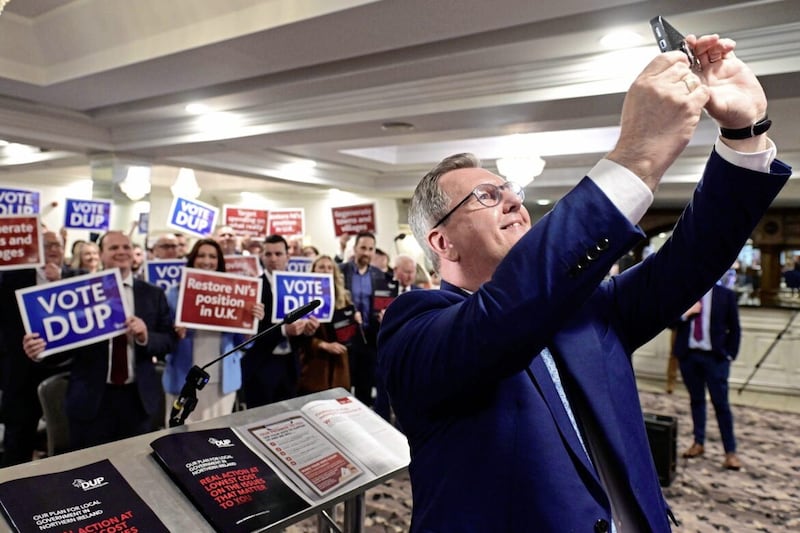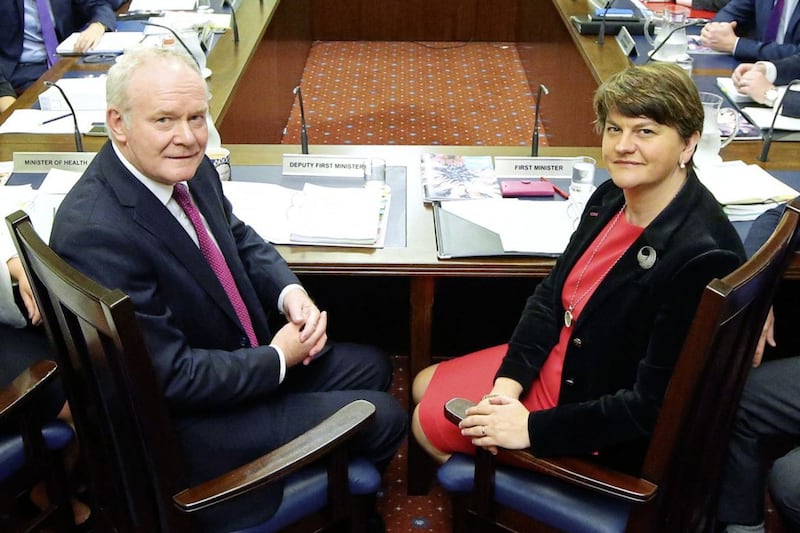In January last year, DUP leader Sir Jeffrey Donaldson said his party was considering all its options for after May’s assembly election, including opposition.
This was at a time when the DUP was refusing to countenance any outcome other than being the largest party, hence its refusal to confirm it would nominate a deputy first minister. So how could it have entered opposition?
Surprisingly, there is a way. A party entitled to nominate a first or deputy first minister does not have to pick one of its own MLAs. Nor is it required to accept the departments it is entitled to under the d’Hondt process.
If the DUP revived the assembly by permitting the appointment of a speaker, it could nominate UUP leader Doug Beattie as deputy first minister then sit out the two turns at d’Hondt it is due under present assembly numbers.
That would result in an executive with four Sinn Fein ministers, three Alliance (including justice, allocated separately) and one UUP, plus the Sinn Fein and UUP first and deputy first ministers.
Newton Emerson columns:
- Donaldson's 'Kinnock moment' more like a howl of frustration
- Prospects of Stormont return receding
- DUP Stormont boycott leaves NI investment summit with a mountain to climb
The DUP had a petition of concern-type mechanism created for the executive at St Andrews. If any three ministers flag up a decision, it has to pass a cross-community executive vote.
With only two ministers, unionism would need Alliance’s help to flag up a decision, although the UUP alone could still block the subsequent vote.
Alternatively, there could be a deal for an independent unionist justice minister, as in 2016, to bring unionism over the threshold. Unionism would also remain the largest designation in the assembly, where its veto would be undiminished. That would let the DUP say it had not left unionists powerless.
One consequence of this option existing is that the DUP cannot ask for the rules to be changed to restore Stormont and enter opposition. For example, it could endorse Alliance’s proposal for the two largest parties to still be offered the posts of first and deputy first minister but not to have to take them, preserving powersharing while removing the large party veto. That would put Sinn Fein on the spot to agree, perhaps the only way the veto will ever be removed.
It is clear Sinn Fein still sees advantage in collapsing Stormont. Strategic unionism would head this off now.
Whatever the DUP’s reasons for considering opposition last year, they were serious enough for Donaldson to make the possibility public. The DUP may have wanted to signal its unhappiness with the protocol without threatening Stormont, or it may have been genuinely seeking a sustainable medium-term position, where it could avoid responsibility for implementing the protocol without being blamed for depriving Northern Ireland of a government.
The issue was forced within days by Edwin Poots, who caused a row over border posts that bounced the DUP into withdrawing its first minister. Stormont collapsed step by step over the next nine months.
Is opposition an idea that could return?
The DUP might see the case once again for avoiding responsibility, this time for implementing the Windsor Framework. The framework is inevitably flawed and a dying Conservative government has little energy to fix it. Labour could shortly render much of it redundant by aligning Britain more closely with Europe.
If Stormont returned in the meantime, the DUP could sit outside saying ‘we told you so’.
DUP voters support the boycott but there is no guarantee this will hold true until next year’s general election, which is crucial to the party and unionism. Sinn Fein’s boycott was popular with its supporters at this stage, then its vote dropped by a quarter.
The justification for the boycott is that it is unionism’s only leverage. Ironically, Donaldson’s internal opponents have shot this down by complaining the Windsor Framework is no improvement.
If the people who wanted a boycott are claiming it made no difference, why continue? It is a neat question but no party can admit such a failure. Instead, the DUP could try a positive message, with the failure as unspoken context.
‘We realise Northern Ireland needs government and we will hold it to account while opposing the framework’, it might say.
All this would depend on whether opposition helped manage divisions within the DUP, which seems to be the leadership’s first priority.
Becoming a party of protest in the assembly might be a compromise to mollify pragmatists and hardliners.
The real reason opposition seems implausible is that if Donaldson had the gumption to attempt it, he would simply take his party back to work.
Read more:
- Collapse of Stormont and the powersharing Executive: An explainer
- Who are the DUP: An explainer







